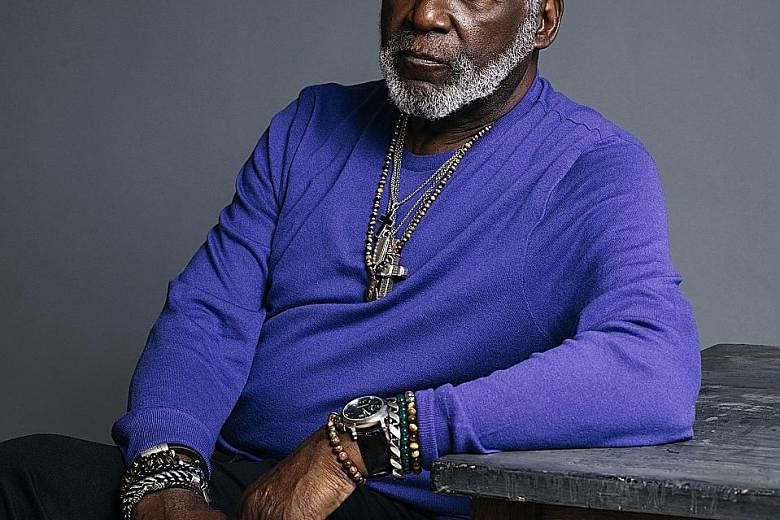NEW YORK • It has been nearly 50 years since Richard Roundtree first donned the street-sweeping leather coat and camel turtleneck of John Shaft, the black private detective whose self-possession and swagger landed in cinemas like a bomb in 1971, changing the relationship between black America and Hollywood forever.
Before Shaft, black movie characters were most often to be pitied, jeered or sainted.
The movie, which grossed US$13 million on a budget of US$500,000, inspired a herd of copycats and inaugurated the blaxploitation era that would reign throughout the 1970s.
Roundtree was 28 when he appeared in the film, his first. Born in New Rochelle, New York, he had been a model, stage actor and taxi driver when black photographer-turned-director Gordon Parks plucked him from a cattle call.
Shaft both turbocharged his career and set it on a loop. He returned for two sequels, an ill-fated CBS television series and a reboot in 2000 starring Samuel L. Jackson as his nephew.
He dusted off the jacket once more, playing a snowy-haired and sailor-mouthed grandfather - to Jessie T. Usher's decidedly unmacho John Shaft Jr - in a surprisingly light-hearted and joke-filled new chapter released last Friday.
In an interview, Roundtree, 76, discussed the paradox of a millennial Shaft, racism he encountered even at the height of his fame and the mixed legacy of blaxploitation.
When you step back into the role, do you interpret it differently?
No, no. He is mellowed, if you will, a tad. And he is a little bit slower now.
Is it sacrilege for there to be a dorky, timid Shaft?
It's inevitable.
How so?
The millennials, you know, you have got to deal with that. I do not understand half of it.
What made the character so transgressive was that he was a black man, but he was free. He had some measure of self-determination.
Played by his own rules.
Right, he did not take anything from anyone. That was obviously aspirational for a lot of black people at the time. Did you feel as if you had a window into a life, or an experience, that might not have been available to you otherwise as a black man?
Yeah. I would have to acknowledge that fact. An example: I was acutely aware of when I would go into department stores and feel the shadow of being followed.
And then I would be recognised and all of a sudden, it would turn. If I were not the actor who played John Shaft, I would be trailed to the dressing room, monitored or stripped.
After the movie came out, black audiences were hungry to see more of those kinds of characters on screen. But there was a lot of anxiety within the community about how black people were being portrayed in films and whether they promoted positive images or fed into stereotypes. Was that reaction warranted?
Some of it. But I had the privilege of working with the classiest gentleman, possibly, whom I have ever known in the industry, Gordon Parks. So, that word, exploitation, I take offence to with any attachment to Parks. That was not who he is, was or had been.
And yes, I have done a couple of films that could be in that category, but my experience of what I was able to do with Gordon transcends that label. I have always viewed that as a negative.
Exploitation. Who is being exploited? (Pause) But it gave a lot of people work and entry into the business, including a lot of present-day producers and directors.
You have often referred to the role as a gift and a curse in the past. Does it still feel that way?
Not a day goes by that I am not somewhere when someone recites the lines from the theme song or lines from the film, as if I have never heard them before. (Tilts his head disapprovingly.) But that is what it is. And at the same time, what else would I be doing? I am still here.
A lot of my friends and associates are no longer here, or no longer in the business, and I am still gainfully employed. So keep it moving, Roundtree.
NYTIMES


